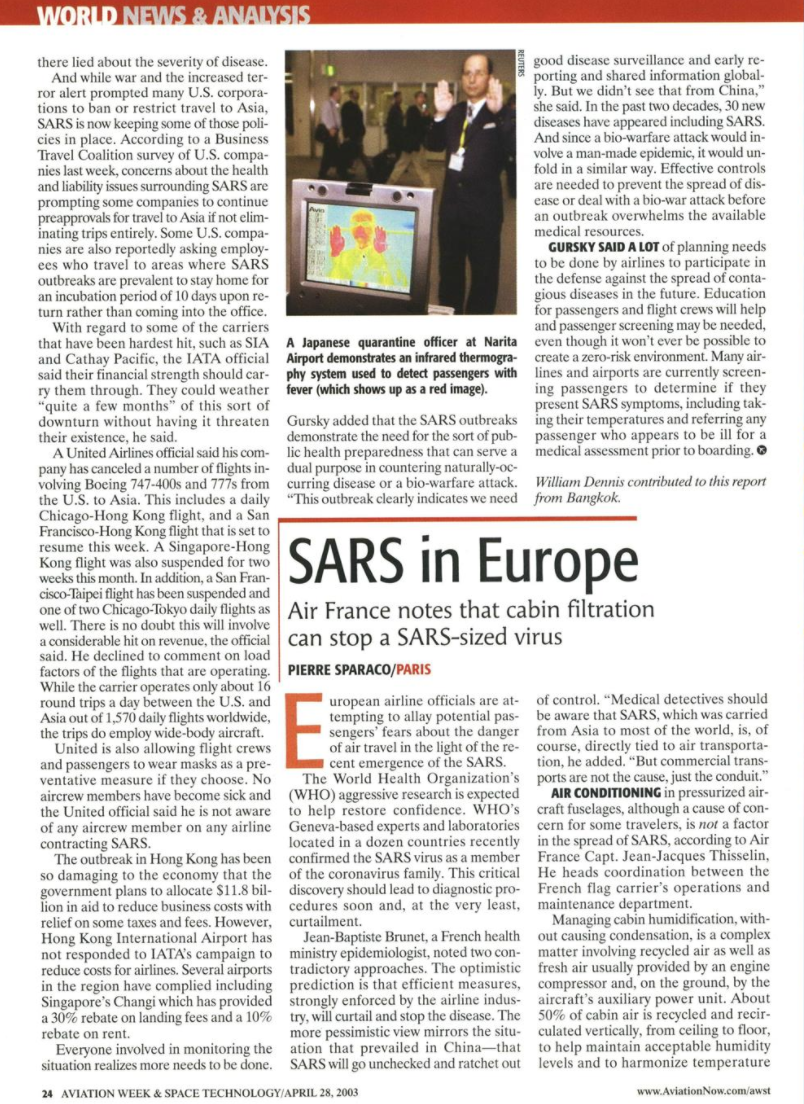SARS: A Mystery Illness To Impact Air Travel

The SARS pandemic spread around the world in 2003 and we can see how, even as far back as 20 years ago, world health is a priority for air travel which relies on health information and government guidelines to restrict travel to stop the virus spreading.
In 2002 airlines were affected by the war on terrorism, the war in Iraq and what reporter Frances Fiorino wrote on page 59 of the April 7 issue of the magazine, “germ warfare, against severe acute respiratory syndrome (SARS), a deadly atypical pneumonia that is spreading rapidly worldwide.”
As such, the World Health Organisation (WHO) issued emergency travel advisory postponing travel to Hong Kong and China’s Guangdong province where the virus was believed to have originated. Read more about this in our archive.
By April 28, we were reporting on news that European airlines were trying to “allay potential passengers’ fears about the danger of air travel”, and that WHO had conducted “aggressive research” and had “confirmed the SARS virus as a member of the coronavirus family.”
French health epidemiologist Jean-Baptiste-Brunet said: “Medical detectives should be aware that SARS, which was carried from Asia to most of the world, is, of course, directly tied to air transportation, he added. “But commercial transports are not the cause, just the conduit.”
Read more of this article in which it discusses the effect of air conditioning and pressurized cabins.
By 2005, we were reporting on having weathered the “severe economic blows of SARS” but the world is about to battle another “new enemy, avian influenza virus”, which while the strain causes severe illness in fowl, is now being transmitted from birds to humans, according to a WHO report. And it is spreading, with the fear that the vaccine may not necessarily work against the latest strain.
The image in the article shows that infrared monitors had been installed in Taiwan's Chiang Kai-shek International Airport to scan travelers for fever, a symptom of SARS.
- Why not explore over 100 years of our rich resource from Aviation Week & Space Technology? Find out how to become subscriber and access the Aviation Week & Space Technology archives.




